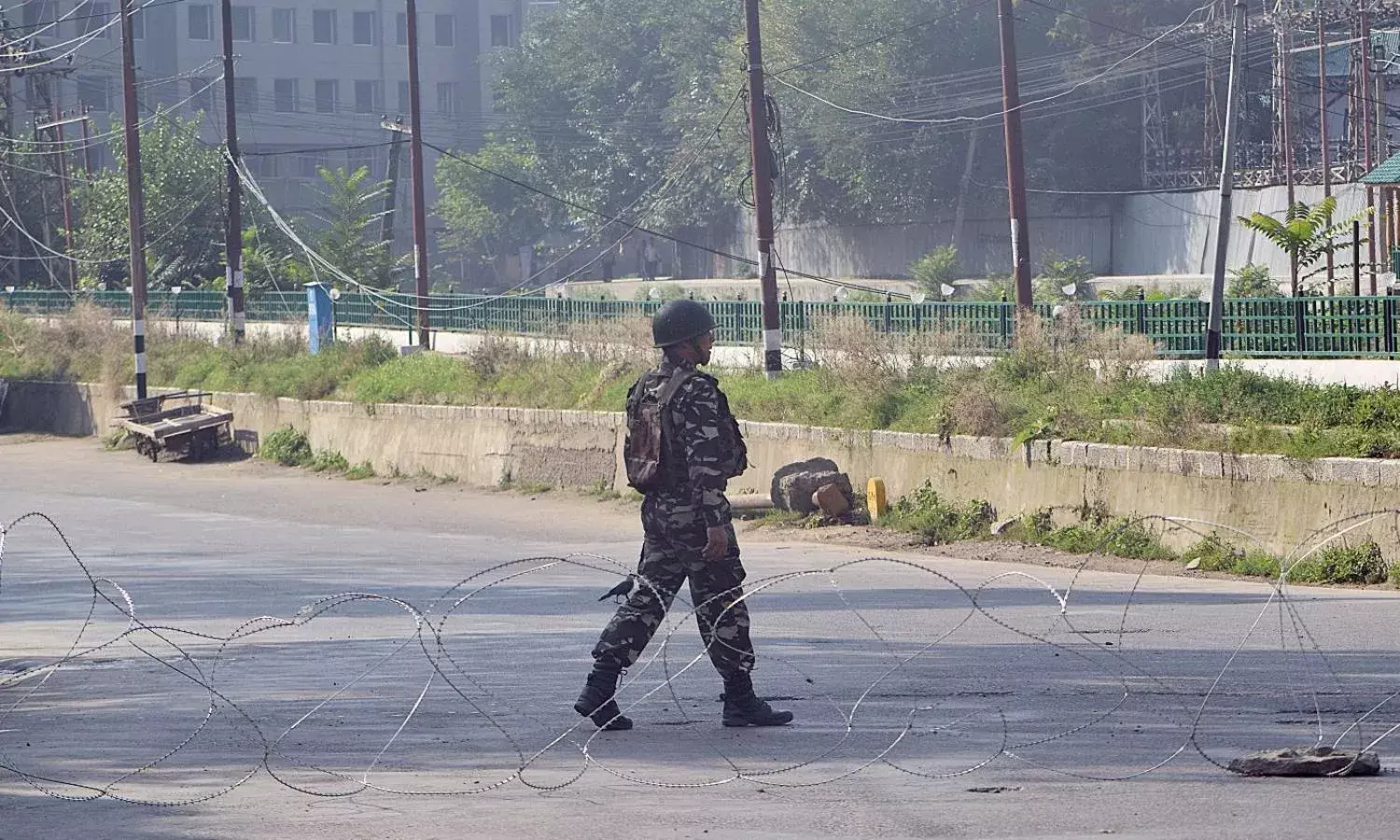21 Days of Curfew - ‘Where Even Stones Weep’
21 Days of Curfew - ‘Where Even Stones Weep’
12 Opposition leaders representing 10 responsible political parties of India tried to visit Kashmir, were stopped at the Srinagar airport, read out an order that questioned their intent, and sent back to Delhi. But just the visit and the flight back opened their eyes to a reality that is being ignored by the Indian media that chooses to see normalcy in empty streets as per Jammu and Kashmir Governor Satyapal Malik.
The Opposition leaders were surrounded by Kashmiris on the flight back, who shared with them stories that had Leader of the Opposition in the Rajya Sabha and Congress MP Ghulam Nabi Azad saying, “such was their plight that we cannot even repeat it, as these would make even stones shed tears.”
And perhaps for the first time since curfew was imposed on the Valley three full weeks ago, Opposition voices have been raised to wonder at measures that have disconnected an enitre peoples from the rest of the country, that has locked up lakhs in their homes and thousands in jails, and that has not still been able to bring back the ‘peace’ required to lift curfew, and bring back the normalcy that fled when 43000 extra paramilitary troops were sent to Kashmir.
“The situation in Kashmir is bhayanak (terrifying)” is the consensus of the 12 political leaders of ten political parties who went to Srinagar to “meet the people” but were returned from the airport with an order that questioned their intent and motivations. To the point where the political leaders --Rahul Gandhi. Dinesh Trivedi, Anand Sharma, D.Raja,Sitaram Yechury to name some of them---signed an immediate letter of protest at the Srinagar airport itself, rejecting the ‘order’ as “unconstitutional and undemocratic.”
The Opposition leaders were actually told in a verbal order ---they were not given a copy---that they were not being allowed into Srinagar because - as Yechury said---”here to mobilise the people to create disturbances etc etc”. The Opposition leaders describing this as “completely baseless” said they were in Srinagar on the invitation of Governor Satyapal Malik who had said they should come and see for themselves how peaceful and normal the Valley was.
As Rajya Sabha Leader of the Opposition and Congress MP Ghulam Nabi Azad said, “this is the first time we are seeing such hospitality where you first invite us , then detain us and send us back.” He said that the situation in the Valley was “bhayanak”, a sentiment voiced by the others in the delegation who said that the stories from the passengers on the flight back to Dellhi--were heart rending.
The visit has broken the political silence here on Kashmir with Priyanka Gandhi following up today with a strong statement of concern for the people. From their statements the Opposition leaders who tried to visit Kashmir are agreed now that:
1.Kashmir is almost a prison with all political leaders now in jail, and the masses locked in their homes;
2. All links remain suspended and hence the Valley totally disconnected from the rest of India, with the Kashmiris having no idea of how their families are for three full weeks now;
3. Clearly the situation is very bad and that is why the government is not lifting the curfew and allowing free movement even though its 21 days since curfew was imposed;
4. That these actions amount to “murder of democracy” for the people of Jammu, Kashmir and Ladakh.
The Indian media has largely blacked Kashmir out, with very few detailed stories appearing here. The international media, however, has kept Kashmir in the headlines with detailed stories of the situation within. Videos of continuing protests, and the plight of the people, are being carried by major newspapers like the New York Times, the Washington Post, the Guardian and others on an almost daily basis.
First person accounts still circulate, of the mother who travelled long distances to check on her sons and see if they were safe; of a heart patient who needed urgent medical attention; of pregnant women without access to medical facilities; of the midnight knocks and youth being forcibly take away; of fear and trepidation, of trauma and helplessness, of anger and alienation. Stories as Azad said, “will make even stones shed tears”.





